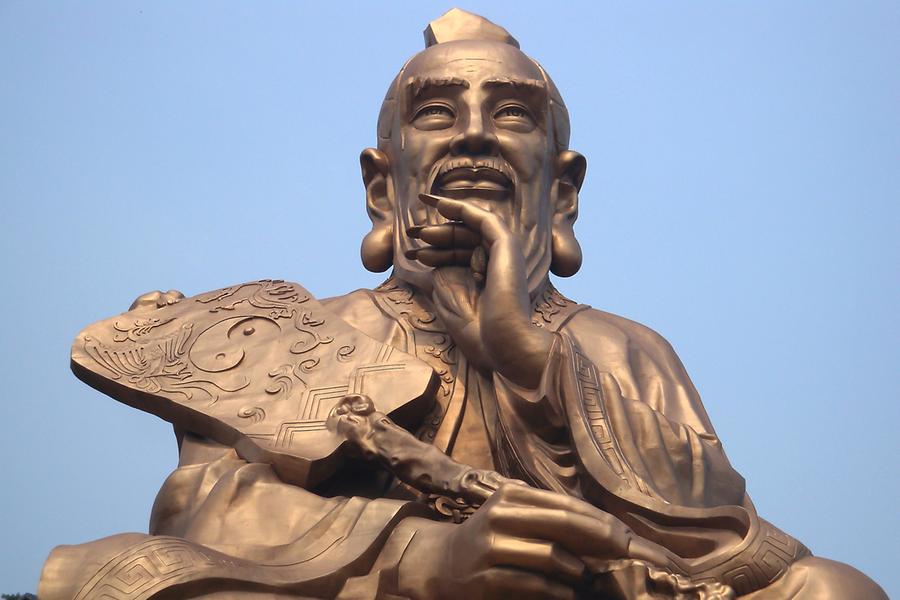Laotse#

Laotse, October 2009, © Gerhard Huber, under CC BY-NC 4.0 +Edu
Taosim is China's own, authentic religion, founded in the 6th century B.C. by the philosopher Lao-Tze. This unworldly doctrine strives for a life in harmony with cosmos and nature. This can not achieved through active intervention in world affairs - but quite the opposite: With a complete withdrawal from any action and only through passive observation one can get on the track of Tao. This Tao is difficult to describe. One can understand it as an unsubstantial, all-pervading principle, a primal wholeness which combines the eternal opposites of being and non-being, of yin and yang. The true Taoist turns away from everything earthly already in this world, leads a life as an ascetic hermit and follows the central premise "By doing nothing, everything can be done." This purely geared to transcendental practice Taoism would probably have hardly prevailed, its teachings difficult to understand, if he had not broken up into several groups, which drew nearer to popular belief. The supreme aim of religious Taoism was the achievement of immortality through all sorts of alchemical practices. Furthermore, believers picked up suggestions and gods from the original shamanism and Buddhism.
Der Taoismus ist Chinas eigene, authentische Religion, gegründet im 6. Jh. v.d.Z. von dem Philosophen Laotse. Dieses weltabgewandte Glaubenssystem strebt ein Leben in Einklang mit Kosmos und Natur an. Das lässt sich jedoch nicht durch aktives Einmischen in das Weltgeschehen bewerkstelligen – sondern ganz im Gegenteil: Durch einen völligen Rückzug von jedem Handeln und nur durch passives Beobachten kommt man dem Tao auf die Spur. Dieses Tao ist nur schwer zu beschreiben. Man kann es als wesenloses, alles durchdringendes Prinzip, als uranfängliche Ganzheit verstehen, das die ewigen Gegensätze von Sein und Nicht-Sein, von Yin und Yang vereint. Der wahre Taoist wendet sich schon im Diesseits von allem Irdischen ab, führt ein Leben als asketischer Eremit und folgt der zentralen Prämisse „Durch Nichts-Tun kann alles getan werden“. Dieser rein auf transzendente Praxis ausgerichtete Taoismus hätte sich mit seinen schwer verständlichen Lehren wohl kaum durchgesetzt, wäre er nicht in mehrere Gruppierungen zerfallen, ie sich dem Volksglauben annäherten. Höchstes Ziel des religiösen Taoismus wurde das Erreichen der Unsterblichkeit durch allerlei alchemistische Praktiken. Zudem holte man sich Anregungen und Götter aus dem ursprünglichen Schamanismus und dem Buddhismus.